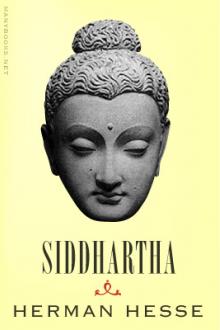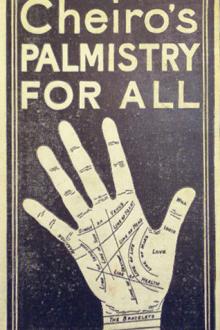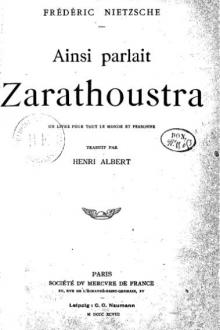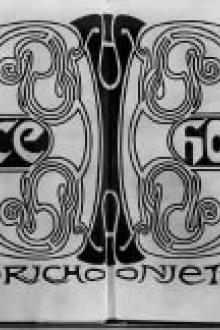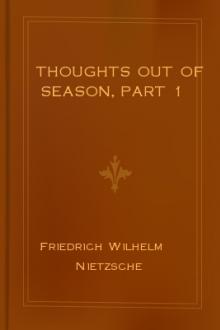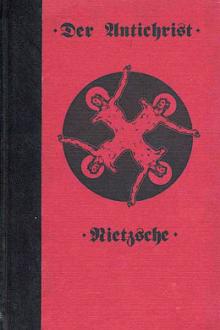Jenseits von Gut und Böse
Jenseits von Gut und Böse
Book Excerpt
ologen oder Pilzekenner
oder Chemiker macht: - es bezeichnet ihn nicht, dass er dies oder
jenes wird. Umgekehrt ist an dem Philosophen ganz und gar nichts
Unpersönliches; und insbesondere giebt seine Moral ein entschiedenes
und entscheidendes Zeugniss dafür ab, wer er ist - das heisst, in
welcher Rangordnung die innersten Triebe seiner Natur zu einander
gestellt sind.
7.
Wie boshaft Philosophen sein können! Ich kenne nichts Giftigeres als den Scherz, den sich Epicur gegen Plato und die Platoniker erlaubte: er nannte sie Dionysiokolakes. Das bedeutet dem Wortlaute nach und im Vordergrunde "Schmeichler des Dionysios", also Tyrannen-Zubehör und Speichellecker; zu alledem will es aber noch sagen "das sind Alles Schauspieler, daran ist nichts Ächtes" (denn Dionysokolax war eine populäre Bezeichnung des Schauspielers). Und das Letztere ist eigentlich die Bosheit, welche Epicur gegen Plato abschoss: ihn verdross die grossartige Manier, das Sich-in-Scene-Setzen, worauf sich Plato sammt seinen Schülern verstand
FREE EBOOKS AND DEALS
(view all)Popular books in Philosophy
Readers reviews
5.0
LoginSign up
Friedrich Wilhelm Nietzsche (1844-1900) had studied theology (which he didn't finish) and philology (the study of language in written historical scources); he became a professor of philology at the university of Basel in 1869, but had to resign in 1879 due to ill health. Nietzsche collapsed in 1889, causing him to become mentally ill, and needed to be cared for until his death in 1900. It has been thought that his collapse was caused by syphilis, but this diagnosis is no longer believed to be correct. The cause of his illness is not known.
In this work Nietzsche critises old philosophers and some of their views on 'free will', knowledge, truth, etc. He felt that the philosophers in the past had not been critical enough about morality, accepting the Chistian views on this theme without questioning those views. Nietzsche tells in this book what qualities philosophers should have, he believed philosophers should move on, into the area 'beyond good and evil'.
I recommend this book to anyone who is interested in modern philosophy, this book will make you think about some of your ideas about good and bad. You don't have to agree with him to gain new insight from this book. Nietzsche was a great writer, his works are written in a lively way. For Nietzsche rhetoric was more important than logic. This book was written in the 19th century, so the language is a bit dated.
The work consists of 296 numbered sections and the poem 'Aus hohen Bergen'. The sections are organized into nine parts, the contents of this book:
Inhalt
Vorrede
1. Hauptstück: Von den Vorurtheilen der Philosophen.
2. Hauptstück: Der freie Geist.
3. Hauptstück: Das religiöse Wesen.
4. Hauptstück: Sprüche und Zwischenspiele.
5. Hauptstück: Zur Naturgeschichte der Moral.
6. Hauptstück: Wir Gelehrten.
7. Hauptstück: Unsere Tugenden.
8. Hauptstück: Völker und Vaterländer.
9. Hauptstück: Was ist vornehm?
Aus hohen Bergen. Nachgesang.
In this work Nietzsche critises old philosophers and some of their views on 'free will', knowledge, truth, etc. He felt that the philosophers in the past had not been critical enough about morality, accepting the Chistian views on this theme without questioning those views. Nietzsche tells in this book what qualities philosophers should have, he believed philosophers should move on, into the area 'beyond good and evil'.
I recommend this book to anyone who is interested in modern philosophy, this book will make you think about some of your ideas about good and bad. You don't have to agree with him to gain new insight from this book. Nietzsche was a great writer, his works are written in a lively way. For Nietzsche rhetoric was more important than logic. This book was written in the 19th century, so the language is a bit dated.
The work consists of 296 numbered sections and the poem 'Aus hohen Bergen'. The sections are organized into nine parts, the contents of this book:
Inhalt
Vorrede
1. Hauptstück: Von den Vorurtheilen der Philosophen.
2. Hauptstück: Der freie Geist.
3. Hauptstück: Das religiöse Wesen.
4. Hauptstück: Sprüche und Zwischenspiele.
5. Hauptstück: Zur Naturgeschichte der Moral.
6. Hauptstück: Wir Gelehrten.
7. Hauptstück: Unsere Tugenden.
8. Hauptstück: Völker und Vaterländer.
9. Hauptstück: Was ist vornehm?
Aus hohen Bergen. Nachgesang.
- Upvote (0)
- Downvote (0)

 Free Download
Free Download












